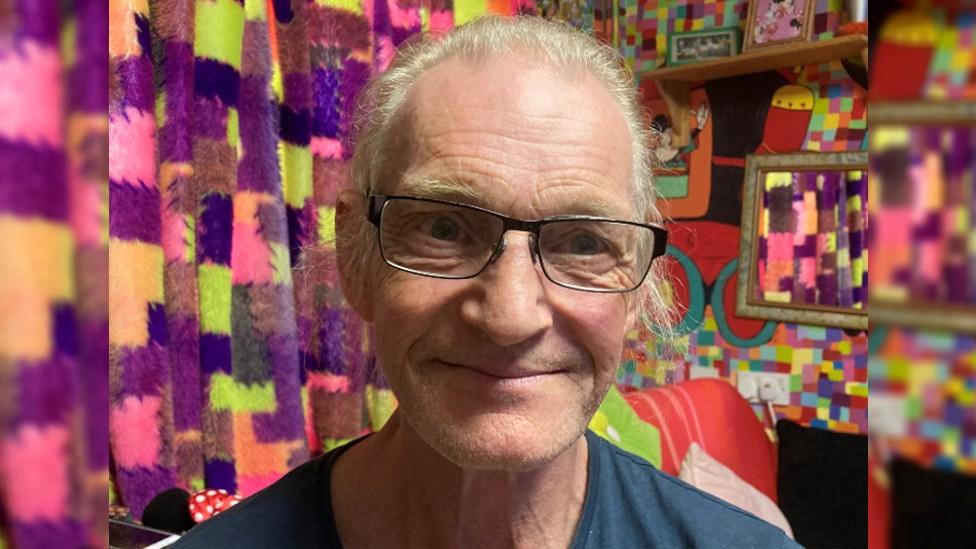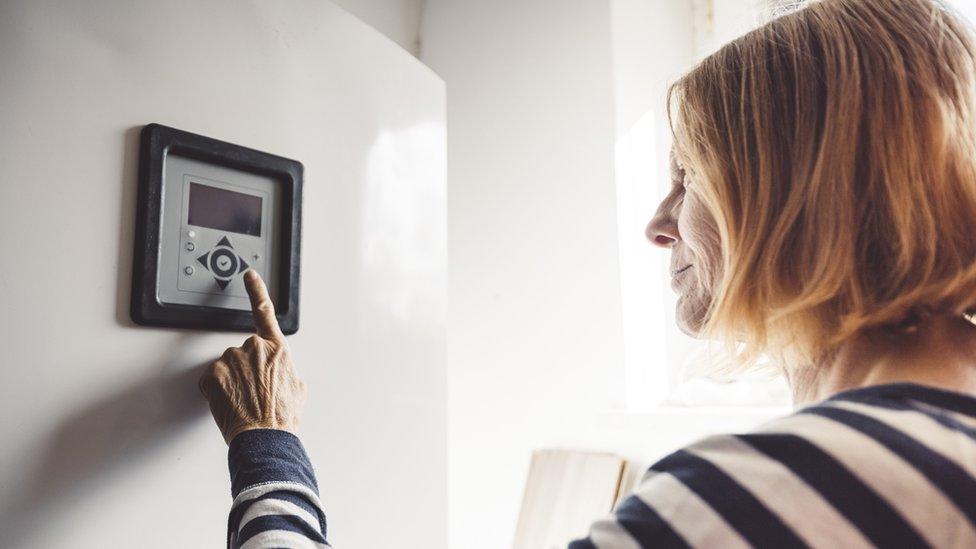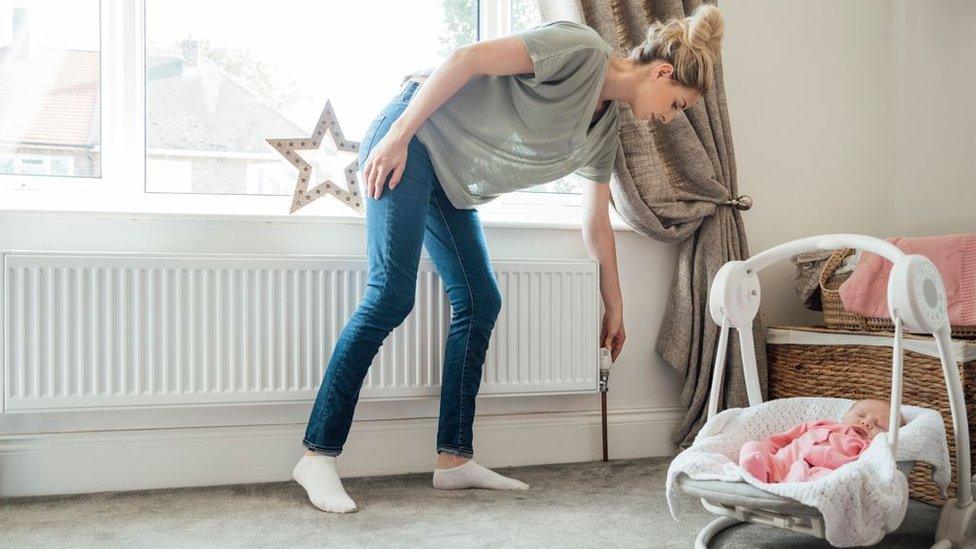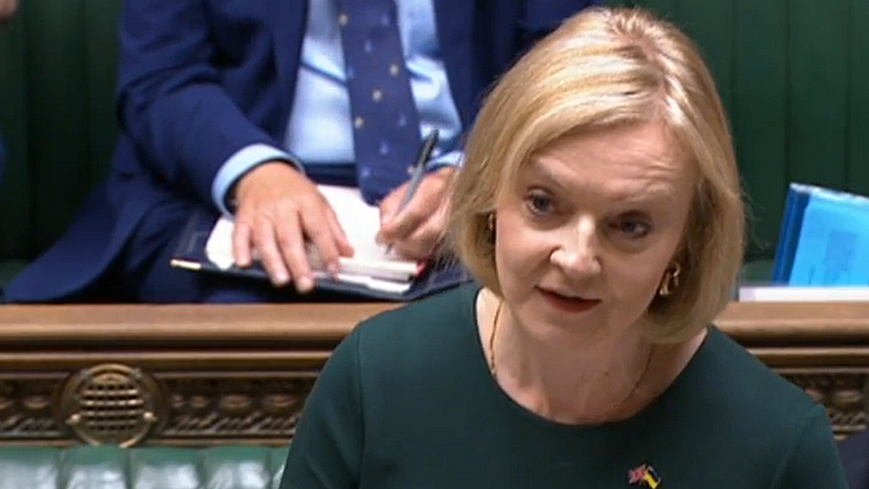Energy: Ex-soldier 'I will have to turn the power off'
- Published

Graham Jull said after paying rent, he only has £200 to last him for the rest of the month
An ex-soldier has said he is worried about how he will keep warm this winter, as people grapple with high energy prices.
Graham Jull, 66, from Salisbury, who cares for his partner, said he would have to start turning the power off.
Mr Jull said: "I'm not the only person in this position and there's people worse off than me."
Liz Truss has said from October a typical household energy bill will be capped at £2,500 annually until 2024.
However, if you use more gas or electricity than that, you will pay more.
For a typical household - one that uses 12,000 kWh (kilowatt hours) of gas a year, and 2,900 kWh of electricity a year, without intervention, that annual bill would have been £3,549 a year.
'Already using foodbank'
Last winter it was £1,277 a year.
Mr Jull who served as a bandsman in the British Army for 12 years, said he was appalled by the way he had been treated by a country that he had given "so much of myself to".
He said: "I'm most worried about keeping warm and if the prices go up in the shop - I'm already using the foodbank."
"We've been pushed into a corner," he added.

"It's not practical to put the heating on this year," a mother-of-three says
Mr Jull said he uses a pre-paid meter and tops it up by £10 every two days.
He said most of his pension, which is between £700 and £800 a month, is spent on his rent, which is £600.
"That leaves me with £200 to last a month," he added.
Mr Jull said as the winter approaches, he and his disabled partner Vanessa Edwards, for whom he is a carer, will "have to find alternative ways" of surviving.
He said he knows "what it's like to lose everything and then come back and fight back" but the government should give a "bit more support for the poorer side of our society".
'Can't afford to heat'
A spokesperson from the Department for Work and Pensions said they "recognise that people are struggling with rising prices" and they "are protecting millions of the most vulnerable people with at least £1,200 of direct payments, starting with the £326 cost of living payment" which they said, "has already been issued to more than seven million low income households."
They also said six million disabled people should expect an extra £150 payment in their bank accounts from 20 September.
Finally, they said all households would receive a £400 energy payment and vulnerable people in England were are also being supported by the Government's Household Support Fund.
Ms Edwards said her main goal during the winter months was to "keep paying rent" so they "don't get evicted."
Meanwhile, a single mother to three children, who lives near Malmesbury and wished to be anonymous, said "it's not practical to put the heating on this year".
She said her house which is all electric, "costs a fortune" to heat and while she is worried about her children who need to be kept warm, she "just can't afford to heat the house".
"It's food or fuel. I'd much rather them [the children] be fed," she added.

The lowest comfortable indoor temperature is estimated to be between 18-21C
However, she said she was also worried about the rising cost of food and would need to budget for that too.
She said: "It makes me feel rubbish."
The mother, who lives in social housing, said in the colder months, their bathroom feels "like you're walking outside".
Last winter, she said she had to try and keep one room warm and ended up having all three of her children sleep in the same room as her to keep warm.
"It's very sad. I think a lot of people are going to be in the same position this year," she added.
The mother-of-three under 10 said while the government had agreed to cap energy bills, she did not think it was enough.
"Even with that, most households are going to struggle."
She said she feared organisations like foodbanks would struggle to keep up with demand.

Follow BBC West on Facebook, external, Twitter, external and Instagram, external. Send your story ideas to: bristol@bbc.co.uk , external
Related topics
- Published8 September 2022

- Published13 September 2022

